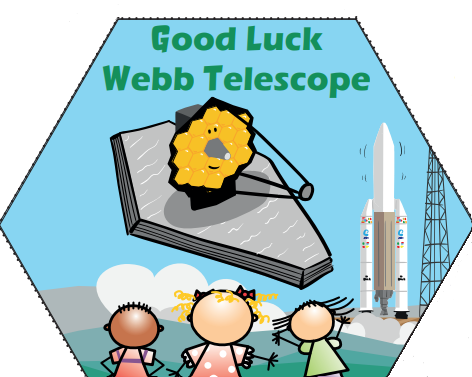Universal Space’ is a national programme, supported by the Science and Technology Facilities Council (STFC), working through the British Association of Planetaria (BAP). Members of the BAP are science engagement professionals who play a significant role in the education, public engagement and communication of space sciences in the UK, collectively reaching over 1.5 million people every year.
This project is supporting our planetarium community to share the stories and science of the James Webb Space Telescope with schools and the public, by providing highest quality, bespoke immersive graphics, sector-leading training and professional development, and building strategic partnerships with aligned organisations.
A core aim of ‘Universal Space’ is to reach out to people who are traditionally underserved by space science communication and engagement, including areas of geographical isolation and social deprivation. However, we acknowledge it is not just about reaching people, it is about making it relevant and meaningful once we’re in the same dome. Without putting our audiences needs first, we risk putting people off, and therefore the inspiring resources we produced through this programme had to be useful for the community, but primarily accessible, relevant and co-created with a more diverse audience. Therefore, the name for this project ‘Universal Space’, is a direct reference to our planetarium domes striving to become more universal and inclusive spaces, where all feel they are welcome, they belong and there is something in this experience for them.
The training event that took place on 10th May 2019 marked the start of this programme delivery. It was exceptionally over-subscribed and fantastically well received by all present. Coming together with a clear goal of engaging a more diverse public with the science, engineering and people behind the Webb Telescope, we brought together the large planetarium domes and smaller mobile domes with the Webb engineers, scientists and researchers working on different areas of Webb science, inclusion specialists and consultants and the inspirational European PI Professor Gillian Wright. The result was a day filled with energy, excitement and motivation, which aimed to support all attending to feel professionally valued and enthused.
Alongside discussing the very best practice in inclusive science communication and evaluation, the opportunity to meet, question and be inspired by the scientists, researchers and engineers working with the Webb Telescope has been exceptionally highly valued by the planetarium professionals.
With 100% increased confidence for those attending, 29 of 30 different planetarium domes committed to taking the resources and learning from the event out into their professional practice. Over the next 18 months, the resources are likely to reach over 150,000 children and adults, with many more beyond the stated project period. This programme is building capacity and sharing learning and good practice, raising awareness and pushing our current boundaries to champion inclusion across development and delivery. We are all looking forward to understanding our impact and continuing to learn from within and outside our sector, in how we can better support a new generation to enjoy and participate in the many future discoveries from the Webb Telescope.
Shaaron Leverment
‘Universal Space’












